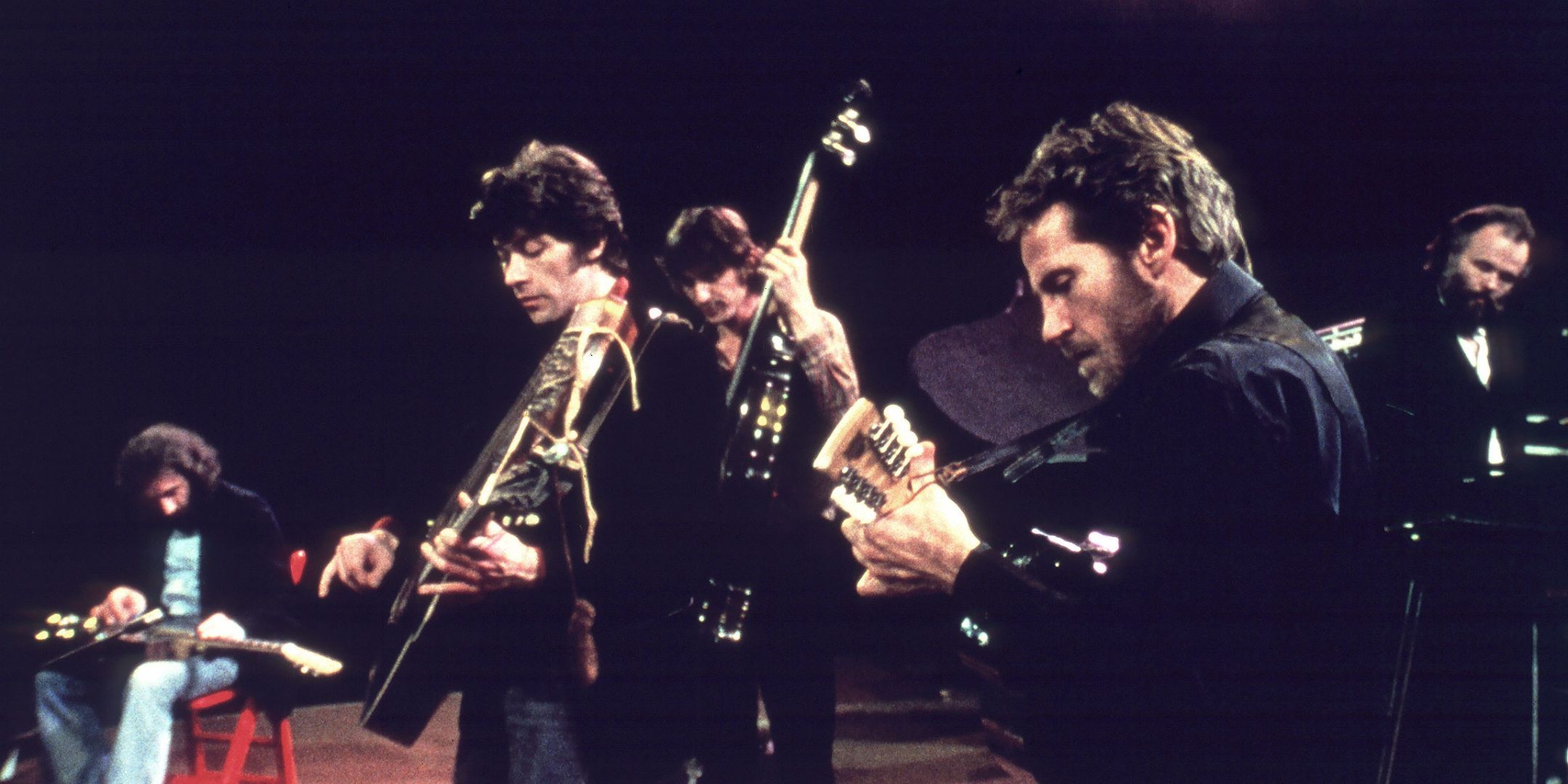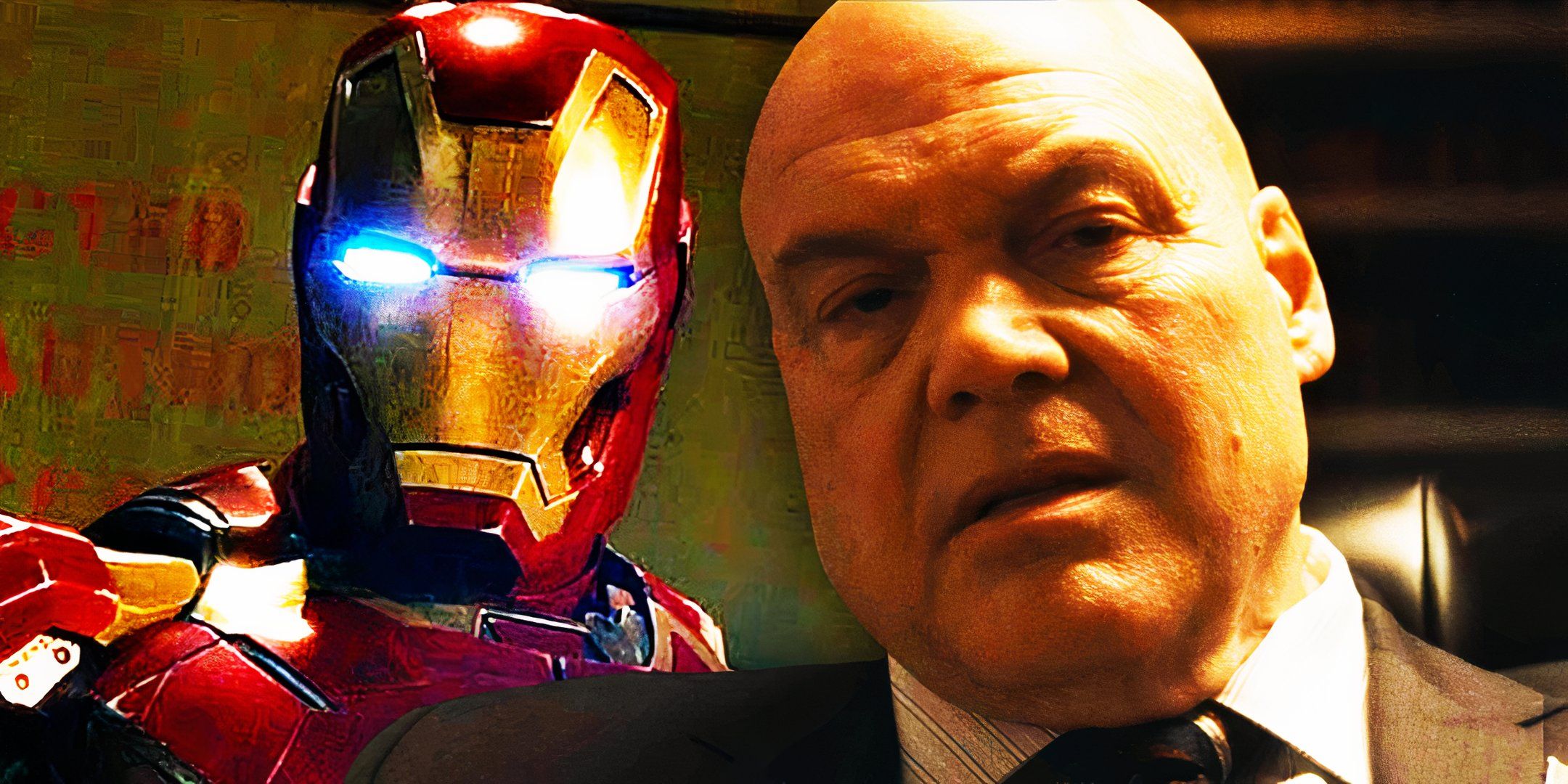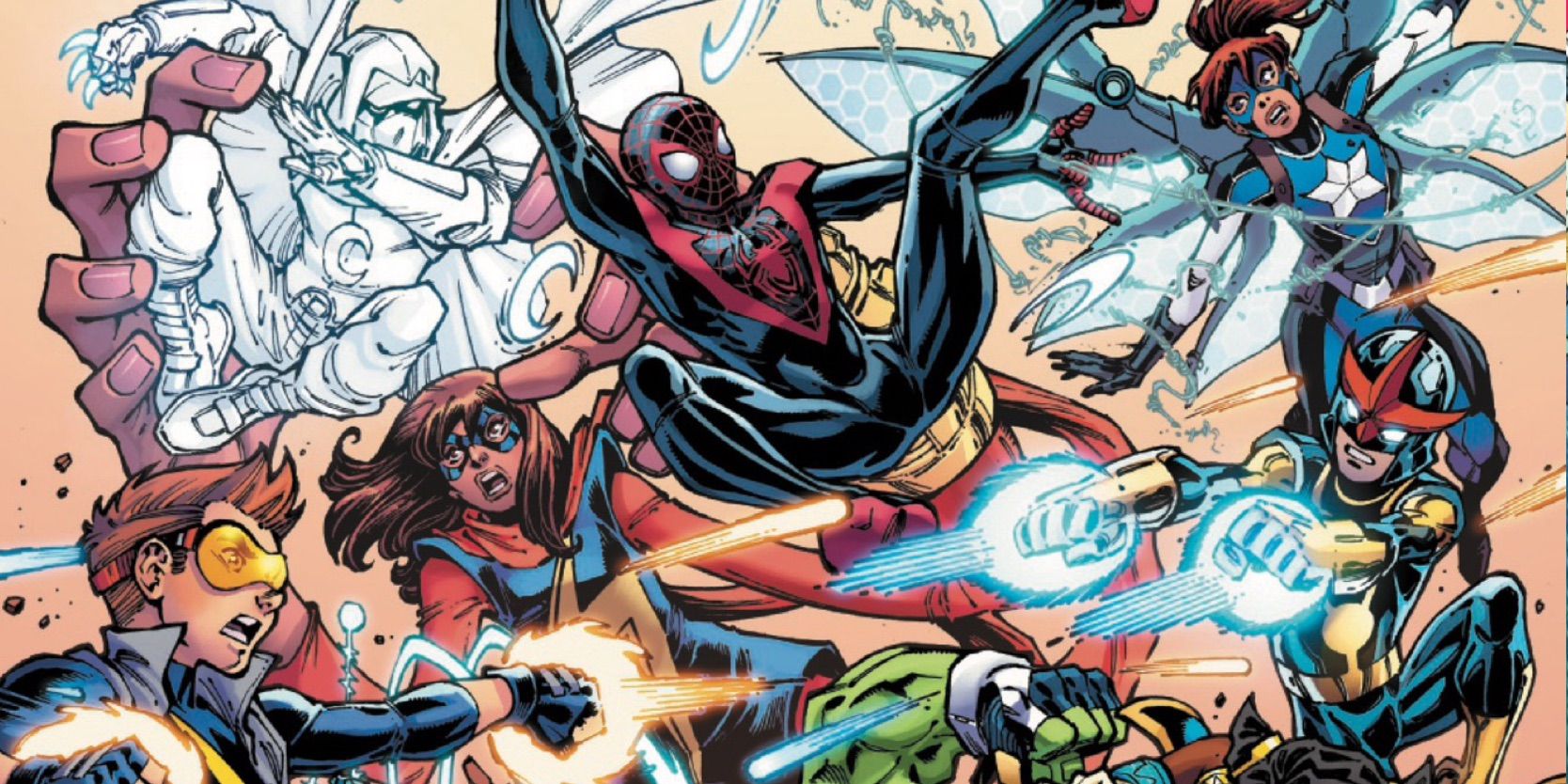One Of The Greatest Rock Bands Of All Time Started By Backing Bob Dylan
In 1957, a special new brand of music began to form within a band getting their start that year in Helena, Arkansas. In time, the core five members would eventually come to be hailed for defining their own genre mixture of soulful country, R&B, folk, rock, Americana, and jazz, both within this group and in their separate solo work. But that mountainously high level of ultimate reputation wasn't just built in a day. There was a long road required to get there first, along with a few fortunate yet simple twists of fate.
So where does this story begin? How does a small band coming out of Arkansas and later Canada wind up influencing the likes of Eric Clapton , Elton John , George Harrison of The Beatles , and the Grateful Dead? Well, to open up that initial chapter properly, you first have to start the equation off with a bit... of rockabilly.
The Formation Of The Hawks
Backing Up Ronnie Hawkins
In 1957, rockabilly singer Ronnie Hawkins needed a band, and he found one with some close friends in Helena, Arkansas, that they dubbed The Hawks. Local drummer Levon Helm played as a member of The Hawks in those early days but needed to graduate high school before he could accompany the group to gigs in Canada. Once Helm graduated, the group was able to tour and record music in both the United States and Canada, with Hawkins eventually choosing to make Ontario, Canada, his home base as The Hawks grew in popularity there.
But with the move came transition, as all the members of The Hawks other than Helm and Hawkins dropped out of the band following the move to Ontario. To fill the vacancies, Hawkins pulled in Canadian musicians Richard Manuel, Rick Danko, Robbie Robertson, and Garth Hudson. Hudson proved the most difficult to sway, as he desired to be a music teacher and only play rock music as a hobby; he was eventually coerced to join with a weekly fee to be an instructor for the rest of the band and a state-of-the-art Lowrey organ.
By the early '60s, The Hawks ultimately split with Ronnie Hawkins, citing creative differences and issues with his leadership as the band felt their ambition had outgrown Hawkins' vision. Over the next few years, the group would go by various names, including the Levon Helm Sextet, the Canadian Squires, and Levon and the Hawks, as they searched for their next step. And that next step came in 1965, when the famed Bob Dylan came calling.
Electric Tours and Levon's Hawks
A Journey Toward Finding An Identity
In late 1965, Bob Dylan was looking for a backing band to accompany him on his first electric tour of the United States following his then-controversial shift away from folk music. After being recommended by several friends to see Levon and the Hawks perform (including blues singer John P. Hammond, who had just worked with the group), Dylan initially asked Helm and Robertson to join the band. Feeling loyalty to their fellow Hawks, the pair only agreed to accompany Dylan if the entire band was hired.
Dylan agreed, and following this, "Bob Dylan and the Band" toured not only the United States but overseas as well through 1966. The gigs were frequently met with negative reception and heckling from folk purists still angry with Dylan over his electric sound, which caused Helm to leave the tour after a month and work on an oil rig in the Gulf of Mexico before later returning. Dylan and the group would also occasionally try to record songs in various studios during this period with minimal results.
Bob Dylan's Biggest Controversy Was Way Bigger Than His "Judas" Insults In 1965 Bob Dylan is a prolific songwriter who has had quite a lot of controversies in his career. However, one of his biggest came decades after his prime.
That is, until Dylan became injured in a motorcycle accident during a break from touring in 1966 and hid away for a time at a home in Woodstock, New York. While the Hawks toured solo for a bit, Dylan eventually invited them to join him to make music in Woodstock in 1967, where they rented a home in nearby West Saugerties they named "Big Pink." The resulting recordings done in both Woodstock and at the Big Pink home were eventually released in part as the much-storied The Basement Tapes in 1975 (with the full cut dropped in 2014).
With sessions alongside Dylan concluding in October 1967, The Hawks began to write their own songs at Big Pink. But as they entered the studio to cut their own material, they still lacked a name for their group as they entered this new creative phase.
The Band, At Legendary Last
Not Just Any Band
Stories vary as to how the band became... The Band. Some accounts claimed they'd tried other group names at first that their record label rejected, while it was also said during the group's time with Dylan they were often referred to as "the band," and the name simply stuck. Whatever the case may be, the newly branded The Band emerged on their own with a bang in the form of 1968's Music from Big Pink and never looked back.
Led by iconic tracks like "The Weight," "I Shall Be Released," and "Tears Of Rage," the Big Pink LP led to The Band's next success, their 1969 self-titled album with striking songs such as "The Night They Drove Old Dixie Down" and "Up On Cripple Creek." And while the '70s weren't quite as significant for The Band, their overall legacy was sealed with the group's exceptional 1977 farewell concert, The Last Waltz, which was filmed by legendary director Martin Scorsese.
Related A Complete Unknown: The 10 Best Bob Dylan Songs From The 1960s, Ranked The 1960s were arguably the most lucrative decade of Bob Dylan’s career, and these are the years that are depicted in his biopic A Complete Unknown.
And while The Band did get back together a few times over the years without certain members and did their own notable solo work, they were never quite as good as when they were the five of Rick Danko, Levon Helm, Richard Manuel, Robbie Robertson, and Garth Hudson. Rock and Roll Hall of Famers who've all passed away now, but through the power of music, will never be forgotten.











COMMENTS